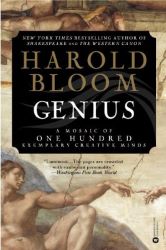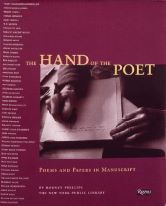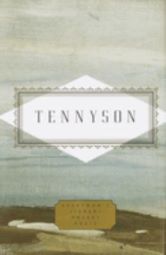
Off the Shelf: Celebrating the Poetry of Lord Tennyson (1809)
Posted Aug. 4, 2023
By Matthew York
Adult Services Librarian
Aug. 6 is the birthday of Alfred, Lord Tennyson, also known as Alfred Tennyson, 1st Baron Tennyson of Aldworth and Freshwater. He was born Aug. 6, 1809, in Somersby, Lincolnshire, England and died Oct. 6, 1892, in Aldworth, Surrey. According to Encyclopædia Britannica, his life circumstances, from grammar school to his rough home life, spanning from the early days of his experiments with writing poetry in the styles of famous poets to the later years of recognition by royalty, did culminate into his eventual appointment as poet laureate of the United Kingdom from 1850 to 1892, which is a position that he held for most of Queen Victoria’s reign until his death:
Tennyson was the fourth of 12 children, born into an old Lincolnshire family, his father a rector. Alfred, with two of his brothers, Frederick and Charles, was sent in 1815 to Louth grammar school—where he was unhappy. He left in 1820, but, though home conditions were difficult, his father managed to give him a wide literary education. Alfred was precocious, and before his teens he had composed in the styles of Alexander Pope, Sir Walter Scott, and John Milton. […]
In 1842 Tennyson published Poems, in two volumes, one containing a revised selection from the volumes of 1830 and 1832, the other, new poems. The new poems included ‘Morte d’Arthur,’ ‘The Two Voices,’ ‘Locksley Hall,’ and ‘The Vision of Sin’ and other poems that reveal a strange naïveté, such as ‘The May Queen,’ ‘Lady Clara Vere de Vere,’ and ‘The Lord of Burleigh.’ The new volume was not on the whole well received. But the grant to him at this time, by the prime minister, Sir Robert Peel, of a pension of £200 helped to alleviate his financial worries. […]
The year 1850 marked a turning point. Tennyson resumed his correspondence with Emily Sellwood, and their engagement was renewed and followed by marriage. Meanwhile, Edward Moxon offered to publish the elegies on Hallam that Tennyson had been composing over the years. They appeared, at first anonymously, as In Memoriam (1850), which had a great success with both reviewers and the public, won him the friendship of Queen Victoria, and helped bring about, in the same year, his appointment as poet laureate. […]
Tennyson’s position as the national poet was confirmed by his Ode on the Death of the Duke of Wellington (1852)—though some critics at first thought it disappointing—and the famous poem on the charge of the Light Brigade at Balaklava, published in 1855 in Maud and Other Poems. […]
A project that Tennyson had long considered at last issued in Idylls of the King (1859), a series of 12 connected poems broadly surveying the legend of King Arthur from his falling in love with Guinevere to the ultimate ruin of his kingdom. The poems concentrate on the introduction of evil to Camelot because of the adulterous love of Lancelot and Queen Guinevere, and on the consequent fading of the hope that had at first infused the Round Table fellowship. Idylls of the King had an immediate success, and Tennyson, who loathed publicity, had now acquired a sometimes embarrassing public fame. The Enoch Arden volume of 1864 perhaps represents the peak of his popularity. […]
Alfred, Lord Tennyson, was the leading poet of the Victorian Age in England and by the mid-19th century had come to occupy a position similar to that of Alexander Pope in the 18th. Tennyson was a consummate poetic artist, consolidating and refining the traditions bequeathed to him by his predecessors in the Romantic movement—especially Wordsworth, Byron, and Keats. His poetry is remarkable for its metrical variety, rich descriptive imagery, and exquisite verbal melodies. But Tennyson was also regarded as the preeminent spokesman for the educated middle-class Englishman, in moral and religious outlook and in political and social consciousness no less than in matters of taste and sentiment. […] (Robson)
Between Queen Victoria and Prince Albert, it was Albert who first recognized the talent of Tennyson: “Prince Albert admired the work [In Memorium (1850)] so much that Tennyson was offered the post of Poet Laureate,” according to the Royal Collection Trust.
James Gant, for MailOnline/DailyMail.Com, quotes a letter in which Queen Victoria writes to Alfred, Lord Tennyson:
‘Almost all I needed most to lean on are taken from me! But tho’ all happiness is at an end for me in this world, I am ready to fight on, praying that I may be supported in bearing my heavy cross. All these terrible sorrows show us, however, truly and really that here is not our abiding home!’
On Leopold’s death [that is, Prince Leopold, Victoria’s youngest son] and vowing to carry on as Queen, she added:
‘It is very hard to see such a young life, so full of talent, so gifted and so useful cut off so soon. While I live, I shall devote myself to the good of my dear country, who has on all occasions of sorrow shown such sympathy with me.’
Prince Albert is believed to have died of typhoid 23 years before Victoria penned the letter, but she was still grieving. At that time she had taken solace in Tennyson’s 1850 poem In Memoriam – which he wrote after the death of his friend Arthur Henry Hallam.” (Gant)
In other words, the same poem that Prince Albert admired of Tennyson’s that earned Tennyson the poet laureate position was later taken up by Queen Victoria to help her get through the grieving process for both her deceased husband and her youngest son.
For further reading:
Poetry books by Alfred, Lord Tennyson available through the Warren-Trumbull County Public Library system include:
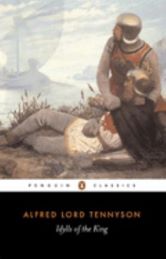 |
Idylls of the King by Alfred, Lord Tennyson | |
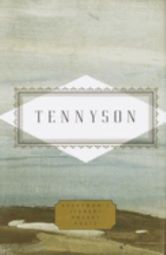 |
Poems by Tennyson |
Other printed books associated with Alfred, Lord Tennyson and his works, also part of the W-TCPL collection, include:
The Warren-Trumbull County Public Library (W-TCPL) has a wide range of poetry from several eras, including contemporary poetry, in a variety of physical and digital formats. We welcome you to browse our catalog and shelves for your next excursion toward the elegance, flourishes, and wordplay, as well as life topics to be explored by reading poetry.
Works Cited:
“Alfred, Lord Tennyson (1809 – 92).” Royal Collection Trust,
https://www.rct.uk/collection/themes/exhibitions/poetry-for-the-palace/the-queens-gallery-palace-of-holyroodhouse/alfred-lord-tennyson-1809-92. Accessed 28 July 2023.
Gant, James. “‘Almost all I needed most to lean on are taken from me’: Never-before-seen letter Queen Victoria wrote to poet Alfred Tennyson describing her heartbreak at losing both her son and husband goes on sale for £3,000.” MailOnline/DailyMail, 8 March 2019,
https://www.dailymail.co.uk/news/article-6786333/Queen-Victorias-letter-poet-Alfred-Tennyson-heartbreak-losing-child-sale-3-000.html. Accessed 28 July 2023.
Robson, William Wallace. “Alfred, Lord Tennyson.” Encyclopædia Britannica, 19 June 2023,
https://www.britannica.com/biography/Alfred-Lord-Tennyson. Accessed 28 July 2023.
Looking for more books to enjoy?
Stop by your local library or visit Novelist Plus for reading ideas.

